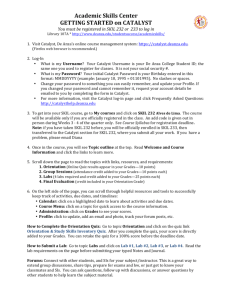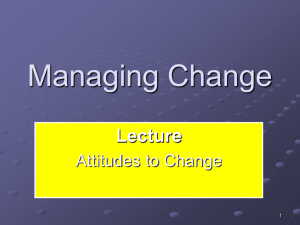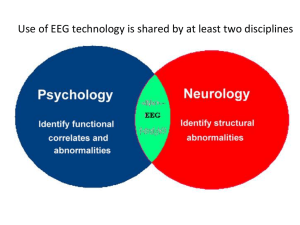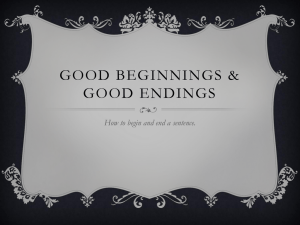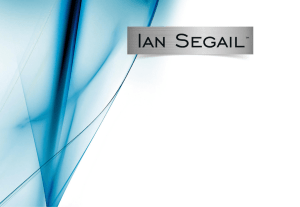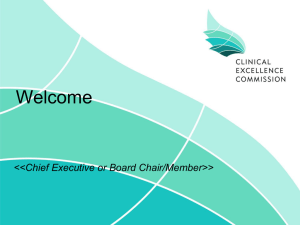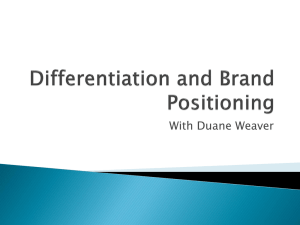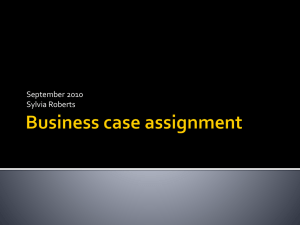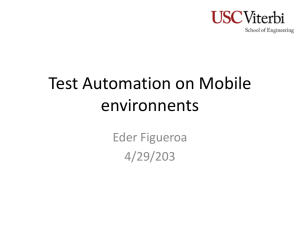SKIL CASE DISCUSSION ON VIDEO (SOME POINTS THAT CAME
advertisement
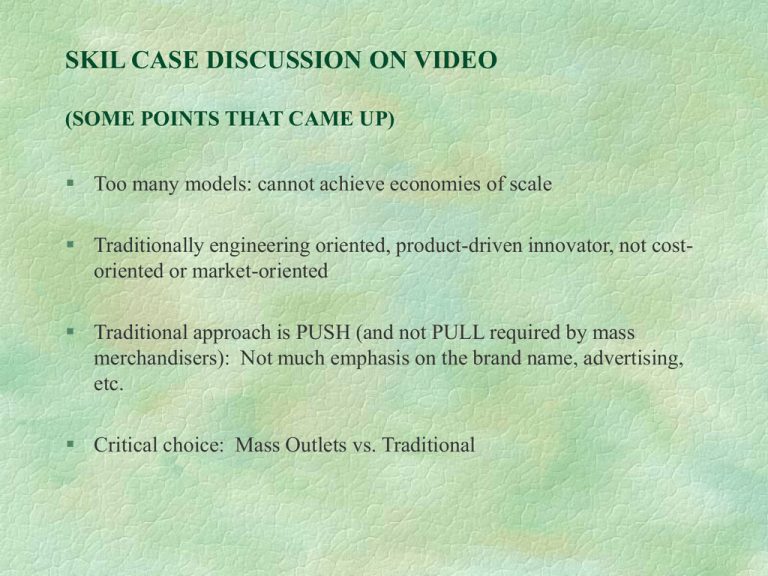
SKIL CASE DISCUSSION ON VIDEO (SOME POINTS THAT CAME UP) Too many models: cannot achieve economies of scale Traditionally engineering oriented, product-driven innovator, not costoriented or market-oriented Traditional approach is PUSH (and not PULL required by mass merchandisers): Not much emphasis on the brand name, advertising, etc. Critical choice: Mass Outlets vs. Traditional WHAT COULD BE DONE? Trim product line, differentiate from Black & Decker. Build on image of SKIL through advertising, professional image, target at the upscale sophisticated consumer Avoid channel conflict. Focus on a narrower range of channels; may result in the loss of some business; but likely to do better in the remaining Hardware stores have higher costs, more dependent on margins, weakness of B&D. Take advantage of that. B&D is committed to a wide line, more so than SKIL due to their PULL strategy. They have to take advantage of market economies. Why not take advantage of SKIL’s smallness and focus on some specific channels But should SKIL trim so sharply as to limit itself to circular saws?: Trade-off General need to redesign & standardize; decrease number of products & product families SKIL’S NEW STRATEGY Decreased number of distribution channels -- streamlined sales force and production -- enlisted support of hardware stores, home centers, etc. Moved from stuck in the middle to FOCUS COST -- reduced product line -- redesigned/product families: STANDARDIZATION -- decreased number of parts on each machine -- global models Decreased no. of plants; increased volume per plant More vol. Per model, more automation, vertical integration Made automation flexible, more models/production line Just-in-Time philosophy; reduced inventories INTERVIEW WITH PRESIDENT OF SKIL BILL DAVIS Patience is important, you need time If you change strategy too frequently, you will not get there Be ready for culture shock Strategic health vs. Financial Health Keep track of customer needs, what channels are doing, etc. May need to change distribution positioning over time Be ready for the responses of competitors Know what you are and be the best in that SKIL CORPORATION LESSONS Don’t imitate: Choose new positioning Focus on target Make tough choices: Dare to trade-off SKIL CORPORATION CONCLUSONS Create a formal process Use a multifunctional team Communicate strategy: inside and outside your organization Be consistent over time Use proper measurement Test strategy continually: no company actually masters strategy
